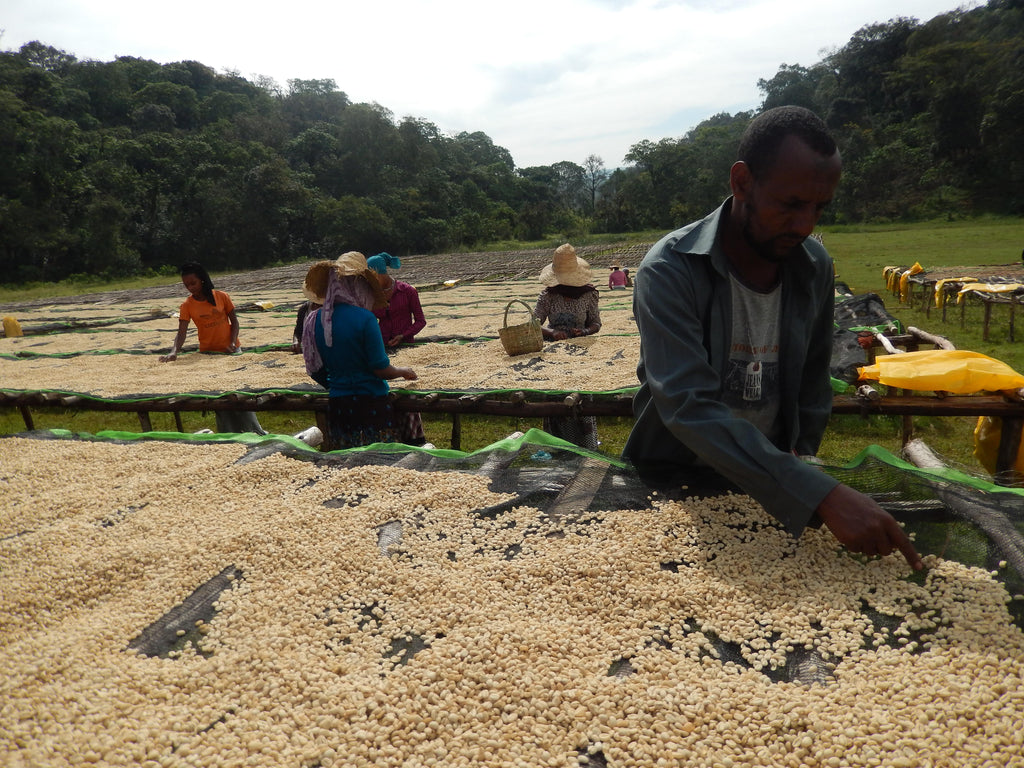When contemplating how necessary funding in infrastructure and processing is, few coffees present a extra obtrusive instance than this lot of natural espresso from the Jimma area, in southwestern Ethiopia. In a rustic famend for the standard of its coffees, this as soon as neglected area has been receiving a whole lot of well-deserved consideration from the espresso neighborhood over the previous couple of years.
This 12 months, the pattern of this espresso we cupped blew us all away, and we knew we needed to buy it and share it with our prospects. It is among the best Ethiopian coffees we have ever had; sure, it is that good. We have been very lucky to have the ability to safe this lot, and we’re excited to roast and serve it – and never solely due to how good it’s, but additionally due to the distinctive social advantages this espresso has for the individuals who cultivated it.
So what makes this specific espresso so particular? As a way to reply that, we’ll must dive somewhat into the story behind the Duromina collective, and the event of espresso cultivation within the Jimma area.

Jimma’s historical past of espresso manufacturing is emblematic of how difficult it may be for farmers to supply espresso to be offered at above commodity costs. This area has all the things nice cherries love – splendid local weather and altitude circumstances, fertile and nutrient-rich soil, and loads of rain all year long. And but, the coffees grown within the area had been, for years, offered solely as low-quality, commodity-grade coffees. The native farmers themselves knew that the difficulty wasn’t within the varietals or the rising circumstances – however slightly an absence of assets, monetary and logistical, that prevented them from absolutely benefiting from their crops’ high quality. In order that they determined to one thing about it.
In 2010, 113 native farmers shaped a cooperative, and the identify they selected for it was their mission assertion: Duromina means “to enhance their lives”https://www.fiveelephant.com/”to complement them” within the native Afan Oromo language. Establishing the cooperative was a essential step in main the native coffee-growing neighborhood to a extra worthwhile future. By pooling their assets there and forming a joint entrance, Duromina’s members had been capable of safe financing and technological help from TechnoServe, an non-profit group working a number of coffee-focused social packages.
The assets it acquired enabled the Duromina cooperative to maneuver away from the normal technique of naturally drying the cherries within the solar, switching to the washed technique as a substitute, which was essential for unlocking the heirloom espresso’s sweetness potential. Duromina’s harvests shortly gained recognition, and nearly instantly began scoring very excessive in numerous espresso competitions, which led us, years in the past, to cupping and buying certainly one of their heaps.
The success of this enterprise program was spectacular. The cooperative was capable of repay all of its loans in a single 12 months, three years forward of schedule. A number of the earnings had been utilized in creating essential infrastructures, corresponding to constructing a stone bridge that connects the native villages to the closest hospital and municipal places of work. For an impoverished area like Jimma, such a worthwhile enterprise mannequin, operated by native farmers, makes an actual distinction.
The Duromina cooperative has accomplished an unimaginable job, constructing an enterprise that’s commercially profitable, quality-driven, and socially-minded – all on the similar time. We advocate attempting this espresso, not simply due to how nice it’s, but additionally as a way to get a way of simply how outstanding the work of this farming neighborhood has been over the past decade.


